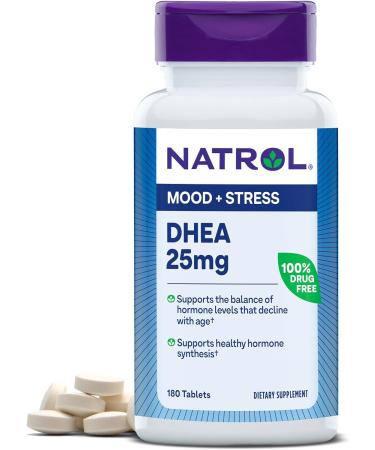TURMERIC POWDER
Turmeric is a perennial herbaceous plant with yellow flowers and large leaves belonging to the ginger family. Also known as Indian saffron, this plant originated in South Asia and spread throughout the world from there. Although it is known by other names such as saffron root, turmeric, and yellow dye, this spice, better known as turmeric, has significant health benefits thanks to the compound curcumin it contains. With its growing popularity in recent years and the scientific evidence proving its numerous health benefits, its consumption has also increased. There are many ways to consume turmeric, including adding it to meals, making teas, and mixing it with yogurt. Anyone who has received approval from their doctor regarding the safety of turmeric consumption can begin consuming it regularly to strengthen the immune system, protect against illness, and benefit from its positive effects on the body.
As with many spices, turmeric has been subject to many years of scientific research. The vast majority of these studies have reached a consensus on its positive health effects. While not a common spice, turmeric gives its yellow color to curry, a spice often used with chicken dishes. This miraculous spice is obtained from the root of a plant with yellow flowers found in regions such as Southeast Asia and India. With its powerful anti-inflammatory and antioxidant properties, turmeric is also frequently used in Ayurveda, a traditional healing method in India. Anyone with no health problems can strengthen their immune system and more easily overcome infectious diseases by consuming 1-2 tablespoons of turmeric daily. Many topics, such as the benefits of turmeric with yogurt and the benefits of turmeric powder, are among the topics that interest those considering turmeric. Turmeric can be consumed in any form, but because the curcumin it contains is only fat-soluble, it is healthier to consume it alongside fat-containing dishes or mixed with naturally fat-containing foods like yogurt.
What are the benefits of turmeric for the skin?
The benefits of turmeric are not limited to its consumption as a food. It also has many positive effects on the skin. Natural mixtures prepared with turmeric can be used to treat many skin-related health problems such as acne, eczema, and psoriasis. Thanks to its antioxidant properties, anti-inflammatory properties, and wound-healing properties, you can prepare a natural mixture with turmeric and apply it directly to problem areas. Yogurt, a nutrient that helps even out skin tone and maintain moisture balance, is a great option for these mixtures. You can apply the mixture by mixing turmeric powder, yogurt, and natural olive oil to your skin, leave it on for a while, and then rinse. Those with sensitive skin or those prone to allergic reactions should be careful with this application. If you experience any burning or itching, discontinue the application and rinse.
How to consume turmeric?
Turmeric, which has become quite popular due to its beneficial health effects, is now available as a spice, as well as in capsules, teas, powders, and extracts. As a spice, turmeric can be easily consumed by adding it to dishes or mixing it with yogurt. Curry spice also contains a large amount of turmeric. Using this spice, especially in chicken dishes and sauces, not only adds flavor but also provides beneficial health benefits. Individuals who dislike consuming it this way may prefer to use turmeric capsules. However, these capsules should be purchased from well-known and reliable brands, and a doctor should be consulted before use. Another way to consume turmeric is to make tea. A teaspoon of turmeric can be boiled in a coffee pot. Other spices can be added to this mixture to enhance the flavor. Research has shown that boiling turmeric for 10 minutes helps its beneficial components dissolve better, so it's best to prepare the tea by boiling it for at least 10 minutes.
What nutrients does turmeric contain?
Despite its numerous health benefits, turmeric has a very low calorie content. Therefore, it is also very suitable for individuals aiming to lose weight. One tablespoon of turmeric powder provides approximately 29 kilocalories of energy. It also contains 0.91 grams of protein, 0.31 grams of fat, 6.31 grams of carbohydrates, and 2.1 grams of fiber. Consuming just one tablespoon of turmeric also helps meet micronutrient needs, meeting 10 of your daily iron needs, 5 of your potassium needs, 10 of your manganese needs, and 3 of your vitamin C needs. Therefore, including turmeric in a healthy and balanced diet plan will help protect your health and meet your macro and micronutrient needs.
What is curcumin?
Curcumin, the main active ingredient in turmeric, is a crucial component responsible for many of the positive effects this food provides on the body. Curcumin makes up 3 of turmeric's weight. Because consuming large amounts of turmeric is necessary to achieve the best benefits, and this is not possible for most individuals, curcumin supplements are produced from turmeric extracts. These supplements can be used after consulting a doctor. Curcumin is a compound with low absorption in the body. Piperine, abundant in black pepper, can increase its absorption by up to 100 . Therefore, turmeric supplements often include piperine to maximize its availability. Additionally, curcumin is a fat-soluble compound. Therefore, consuming it with meals increases curcumin's solubility and, consequently, its absorption.
What diseases does turmeric protect against?
The curcumin in turmeric is a natural anti-inflammatory. This accelerates healing from illnesses and facilitates the treatment of chronic inflammatory diseases. Containing antioxidant compounds, turmeric protects the body against cardiovascular diseases, cancer, and metabolic syndrome. In existing patients, it supports the treatment process while reducing the risk of acute complications and slowing the progression of the disease. Components in turmeric have been found to increase blood levels of brain-derived neurotrophic factor (BDNF), a type of growth hormone that supports the repair and, to a certain extent, the proliferation of neurons in the brain. This suggests that turmeric also provides a protective effect against many psychiatric and neurological diseases, such as depression and Alzheimer's disease. It supports intellectual development in children and strengthens memory and cognitive functions. It protects against cardiovascular disease and strengthens vascular structure. It helps prevent cancer by strengthening cellular structures. This provides a protective effect against all types of cancer. Another positive effect of turmeric on the body is its protection against arthritis. This effect is also achieved through its anti-inflammatory properties.
Turmeric, which provides many positive health effects as mentioned above, can be safely used by individuals without any health problems. Individuals with chronic illnesses or those taking regular medications for any reason should consult a physician before consuming this spice or taking curcumin supplements. If you want to benefit from the positive effects of this nutrient, you can purchase nutritional supplements prepared by reliable brands after consulting your doctor.
Warnings
Store herbal products in cool, dry places with their lids closed. Keep away from sunlight and heat. Keep out of reach of children.
For health concerns, it is recommended that you first consult a healthcare professional.
Due to legal regulations, cannot include product benefits, disease names, or indications. For the most accurate and reliable information, it is recommended that you consult a healthcare professional.













